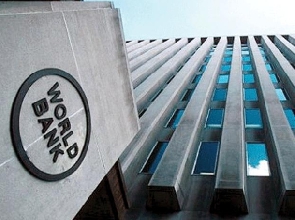The World Bank has said Nigeria’s per capital income could fall to its lowest level in 40 years this year.
The Country Director for Nigeria, Mr Shubham Chaudhuri, noted that the decline in crude oil prices had dramatically impacted government finances, the balance of payments and remittances from Nigerians living abroad.
Chaudhuri spoke on Monday during a panel session at the ongoing 26th Nigerian Economic Summit organised by the Nigerian Economic Summit Group and the Federal Ministry of Finance, Budget and National Planning.
He also noted that the country was still recovering from the last oil price shock of 2014-2016 before the COVID-19 crisis hit the economy.
“The fact of the matter is [that] recovery was there but it was slow; it was only gathering pace,” he said.
Chaudhuri said between 2015 and 2019, 15 million young Nigerians came of working age but only about four million really found the kinds of jobs and opportunities they aspired for.
He said, “Crisis like this is often what it takes to bring a nation together to have that consensus within the political, business, government, military, civil society to say, ‘We have to do something that departs from business as usual.’
“And for Nigeria, this is a critical juncture. With the contraction in GDP that could happen this year, Nigeria’s per capital income could be around what it was in 1980 – four decades ago.”
Nigeria’s per capital income, which stood at $2,229.9 in 2019, was around $847.40 in 1980, according to data from the World Bank. It hit a record high of $3,222.69 in 2014 but fell to $1,968.56 in 2017.
Per capital income is a measure of the amount of money earned per person in a nation or geographic region, and is calculated by dividing the country’s national income by its population.
“This is absolutely a critical juncture and I am very hopeful that given what the government has done, that this crisis will also provide an opportunity for that national consensus,” Chaudhuri added.
Africa Business News of Monday, 23 November 2020
Source: punchng.com

















